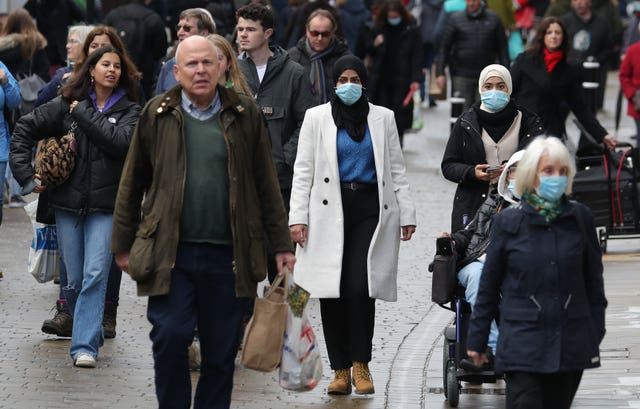
Paul Brand 7am - 10am
7 January 2021, 00:04

The Springboard footfall monitor for December revealed that footfall declined by 41.9%, improving from a 51.2% decline in the previous month.
Shopper numbers across the UK rebounded slightly last month following the November English lockdown but remained weak in the face of coronavirus restrictions, according to new figures.
The Springboard footfall monitor for December revealed that footfall declined by 41.9%, improving from a 51.2% decline in the previous month due to England’s second lockdown.
The data – which covers the five weeks from November 29 to January 2 – showed that high streets were the most affected by low footfall over the period.
Despite the end of lockdown measures, strengthened tiered restrictions caused hospitality, leisure and non-essential retail businesses to close their doors in some regions during the month.

High streets reported a 50.8% fall in footfall in December, while shopping centres reported a 45.6% decline over the key Christmas period.
Retail parks, which typically have more space for social distancing and often have large essential retailers such as supermarkets, were particularly resilient over the month, reporting an 18.7% decline in footfall.
Total footfall in the second and third weeks of the month – after English lockdown measures ended – were only 31.5% lower amid demand for Christmas sales, but worsened to below 50% decline in the final two weeks as areas were moved into Tier 4 restrictions.
Footfall on Boxing Day, traditionally one of the most important trading days for retailers, fell by more than 60% compared to the same day a year earlier.
Diane Wehrle, marketing and insights director at Springboard, said: “Somewhat inevitably, it was retail parks – with the majority hosting food stores – that fared the best in December, a narrative that has been frequently repeated since March.
“Indeed, unlike most high streets and shopping centres the cancellation of the relaxation of restrictions over the five-day Christmas period is likely to have provided even greater support for retail parks as far more households then needed to stock up with Christmas food and groceries.
“A new year brings yet another lockdown which will be a further blow to non-essential retail but with a renewed optimism that bricks and mortar will bounce back in the summer as consumers will be eager to get out again and spend.”